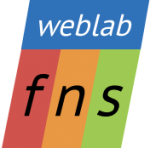About Weblab-FNS

The aim of this project is to develop a portable network infrastructure for fieldwork, that can facilitate the collection, collation and visualisation of data by multiple groups in field locations. The system includes a battery-powered WiFi and Ethernet network, netbook or laptop based web servers, and mobile web clients (i.e. smartphones, tablets, netbooks or laptops). The field network system can either be ran as a local area network providing connectivity between the devices in locations without internet access, or when available, an internet (i.e. backhaul) connection can be added to the local area network to provide internet access for each device.
This project is a collaboration between the Open University’s Knowledge Media Institute (KMi) and the Field Studies Council (FSC). The system is being developed by creating a portable network toolkit and configuring a Drupal-based content management system to provide task-specific support for a set of geography and biology activities, currently undertaken with school and adult groups using data collection worksheets. By trialling the system with a set of example activities, the project will produce a set of case studies that explain both the technical and educational components of the system, that will provide a basis for other groups to set-up and extend similar systems. This work builds on the OU’s previous experience from the Enabling Remote Activity (ERA) and Out There and In Here (OTIH) projects, and the FSC’s prior experience from the Field Logging Analysis and Instant Resource (FLAIR) system.
Click here to view the Weblab-FNS blog posts
Example activities
- River Survey: A set of web forms for collecting river survey data and an associated group of views for reviewing and analysing the data collected. This activity is undertaken by primary and secondary school groups and explores the relationships between a river and the surrounding environment.
- Pond Survey: A set of web forms and views for collecting and comparing biotic and abiotic data at a number of distinct pond habitats. This activity is undertaken by primary and secondary school groups and explores the relationships between trophic (i.e. feeding) level of invertebrate species and their relative abundance across each habitat.
Presentations
Trevor Collins and David Morgan. 2013. “Field Network System: Using mobile and wireless technology to enhance the collection, collation and interpretation of field data.” At the Association for Science Education Summer Celebration Conference. University of Hertfordshire, UK. 27-28 June 2013.
Acknowledgements
The Field Network System was initially funded by a grant from the Wolfson Foundation and forms part of the OU’s OpenScience Lab, which is a collection of open educational resources for science. For further information on the OpenScience Lab, email the OpenScience team at openscience@open.ac.uk.



